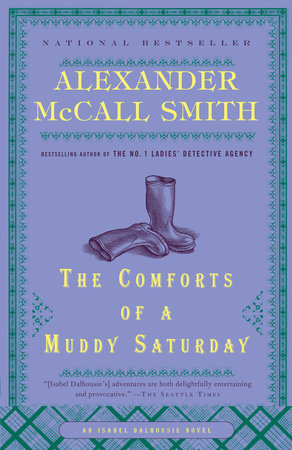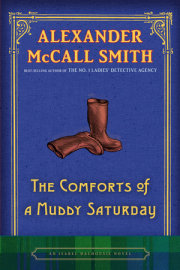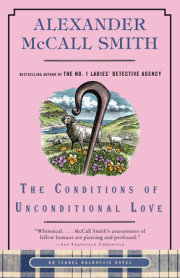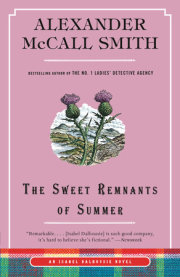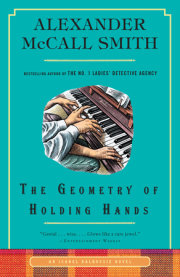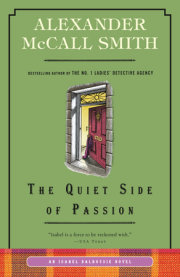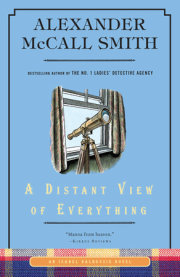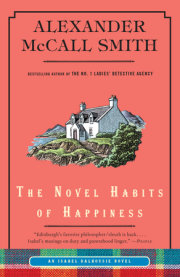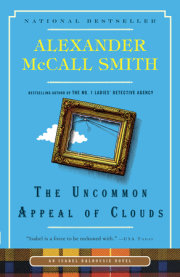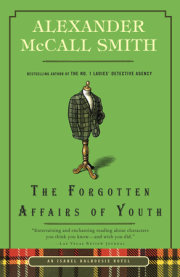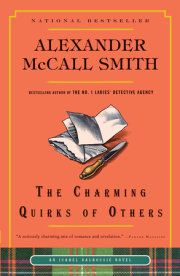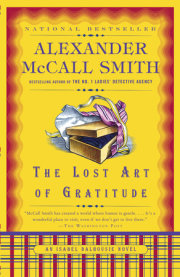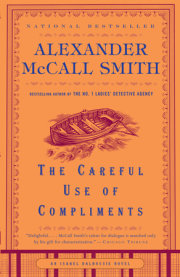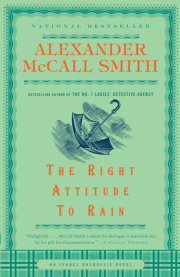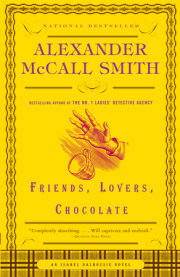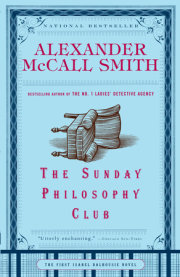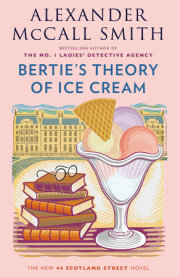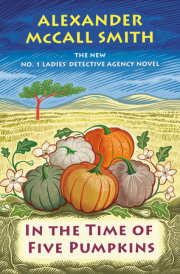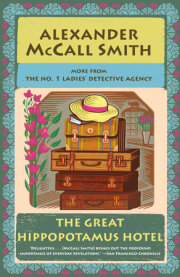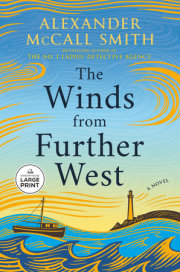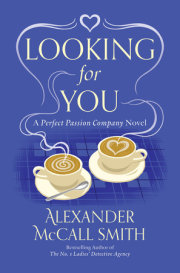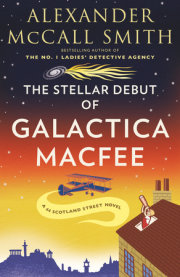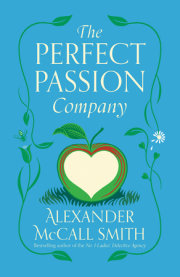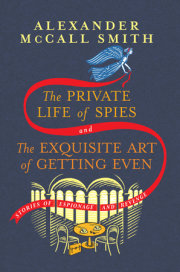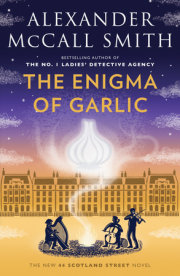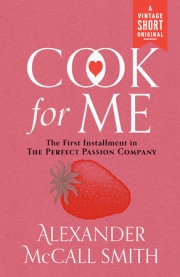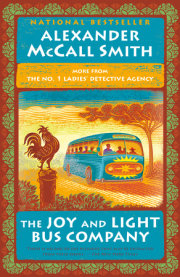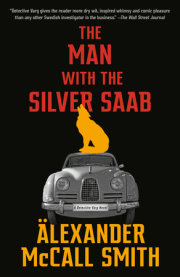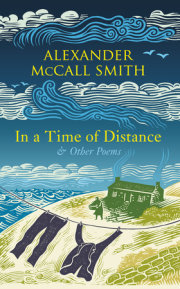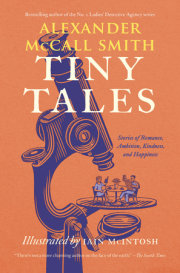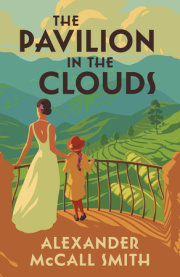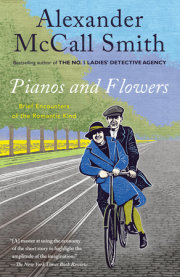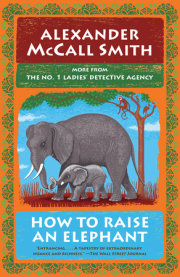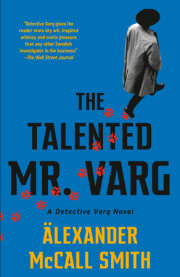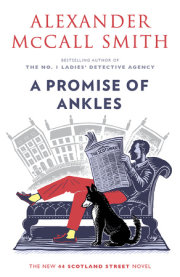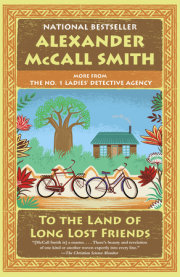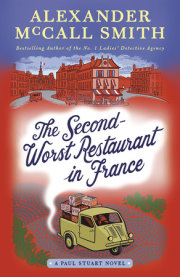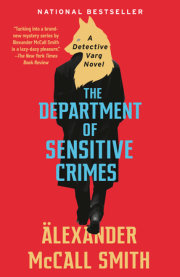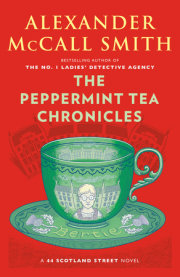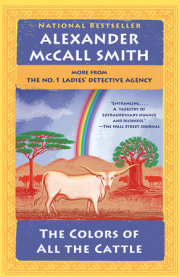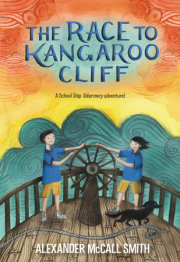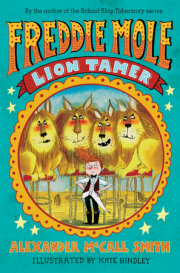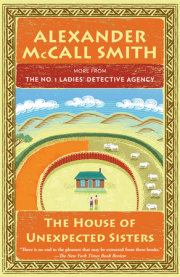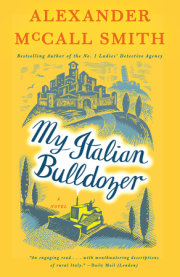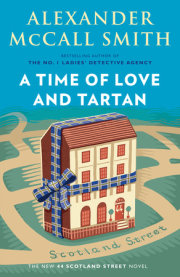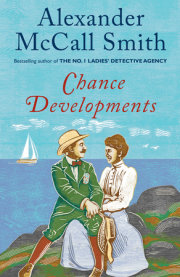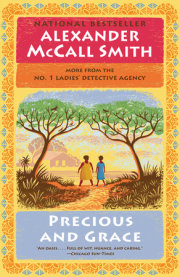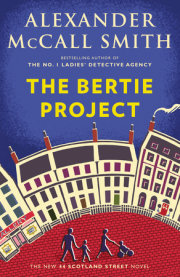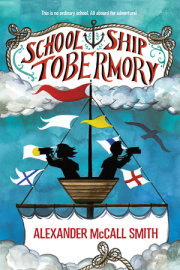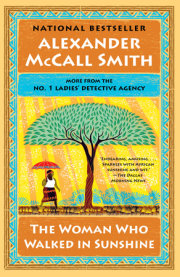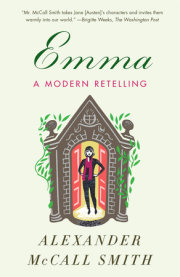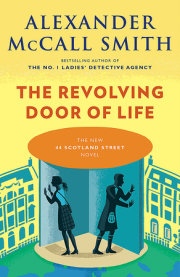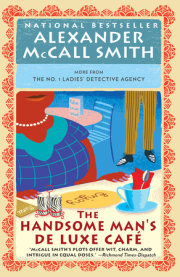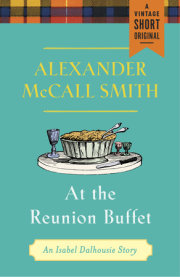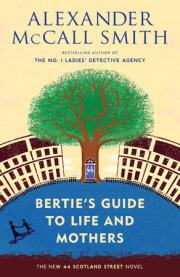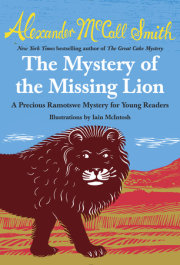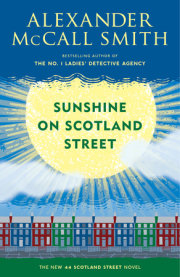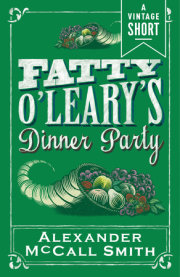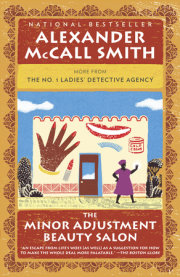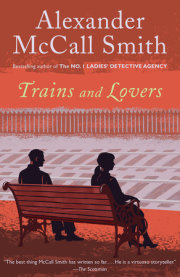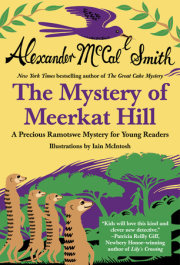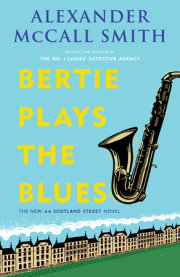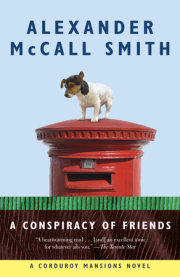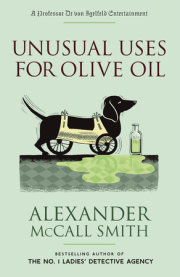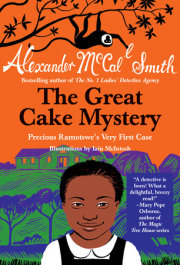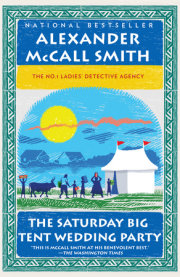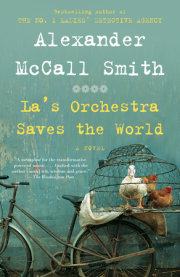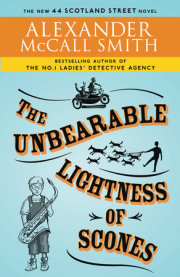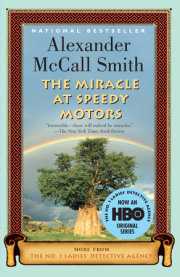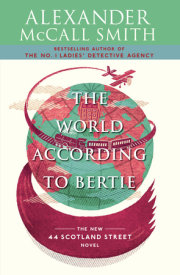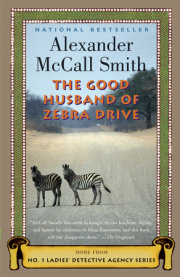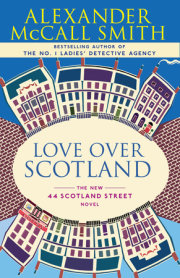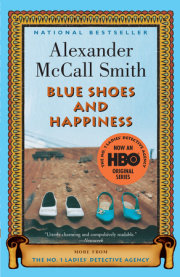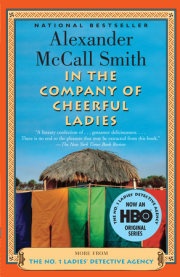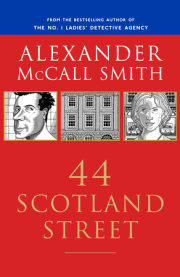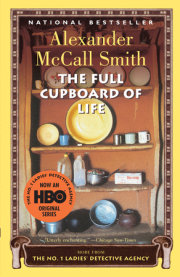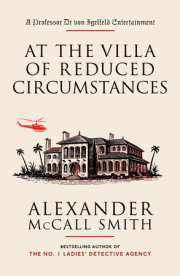What made Isabel Dalhousie think about chance? It was one of those curious coincidences—an inconsequential one—as when we turn the corner and find ourselves face-to-face with the person we’ve just been thinking about. Or when we answer the telephone and hear at the other end the voice of the friend we had been about to call. These things make us believe either in telepathy—for which there is as little hard evidence as there is, alas, for the existence of Santa Claus—or in pure chance, which we flatter ourselves into thinking plays a small role in our lives. Yet chance, Isabel thought, determines much of what happens to us, from the original birth lottery onwards. We like to think that we plan what happens to us, but it is chance, surely, that lies behind so many of the great events of our lives—the meeting with the person with whom we are destined to spend the rest of our days, the receiving of a piece of advice which influences our choice of career, the spotting of a particular house for sale; all of these may be down to pure chance, and yet they govern how our lives work out and how happy—or unhappy—we are going to be.
It happened when she was walking with Jamie across the Meadows, the large, tree-lined park that divides South Edinburgh from the Old Town. Jamie was her . . . What was he? Her lover—her younger lover—her boyfriend; the father of her child. She was reluctant to use the word
partner because it has associations of impermanence and business arrangements. Jamie was most definitely not a business arrangement; he was her north, her south, to quote Auden, whom she had recently decided she would quote less frequently. But even in the making of that resolution, she had found a line from Auden that seemed to express it all, and had given up on that ambition. And why, she asked herself, should one not quote those who saw the world more clearly than one did oneself?
Her north, her south; well, now they were walking north, on one of those prolonged Scottish summer evenings when it never really gets dark, and when one might forget just how far from south one really is. The fine weather had brought people out onto the grass; a group of young men, bare-chested in the unaccustomed warmth, were playing a game of football, discarded tee-shirts serving as the goal markers; a man was throwing a stick for a tireless border collie to fetch; a young couple lay stretched out, the girl’s head resting on the stomach of a bearded youth who was looking away, at something in the sky that only he could see. The air was heavy, and although it would soon be eight o’clock, there was still a good deal of sunlight about—soft, slanting sunlight, with the quality that goes with light that has been about for the whole day and is now comfortable, used.
The coincidence was that Jamie should suddenly broach the subject of what it must be like to feel thoroughly ashamed of oneself. Later on she asked herself why he had suddenly decided to talk about that. Had he seen something on the Meadows to trigger such a line of thought? Strange things were no doubt done in parks by shameless people, but hardly in the early evening, in full view of passersby, on an evening such as this. Had he seen some shameless piece of exhibitionism? She had read recently of a Catholic priest who went jogging in the nude, and explained that he did so on the grounds that he sweated profusely when he took exercise. Indeed, for such a person it might be more convenient not to be clad, but this was not Sparta, where athletes disported naked in the palaestra; this was Scotland, where it was simply too
cold to do as in Sparta, no matter how classically minded one might be.
Whatever it was that prompted Jamie, he suddenly remarked: “What would it be like not to be able to go out in case people recognised you? What if you had done something so . . . so appalling that you couldn’t face people?”
Isabel glanced at him. “You haven’t, have you?”
He smiled. “Not yet.”
She looked up at the skyline, at the conical towers of the old Infirmary, at the crouching lion of Arthur’s Seat in the distance, beyond a line of trees. “Some who have done dreadful things don’t feel it at all,” she said. “They have no sense of shame. And maybe that’s why they did it in the first place. They don’t care what others think of them.”
Jamie thought about this for a moment. “But there are plenty of others, aren’t there? People who have done something out of character. People who have a conscience and who yet suddenly have given in to passing temptation. Some dark urge. They must feel ashamed of themselves, don’t you think?”
Isabel agreed. “Yes, they must. And I feel so sorry for them.” It had always struck her as wrong that we should judge ourselves—or, more usually, others—by single acts, as if a single snapshot said anything about what a person had been like over the whole course of his life. It could say something, of course, but only if it was typical of how that person behaved; otherwise, no, all it said was that at that moment, in those particular circumstances, temptation won a local victory.
They walked on in silence. Then Isabel said, “And what about being made to feel ashamed of what you are? About
being who you are.”
“But do people feel that?”
Isabel thought that they did. “Plenty of people feel ashamed of being poor,” she said. “They shouldn’t, but many do. Then some feel ashamed of being a different colour from those around them. Again, they shouldn’t. And others feel ashamed of not being beautiful, of having the wrong sort of chin. Of having the wrong number of chins. All of these things.”
“It’s ridiculous.”
“Of course it is.” Jamie, she realised, could say that; the blessed do not care from what angle they are regarded, as Auden . . . She stopped herself, and thought instead of moral progress, of how much worse it had been only a few decades ago. Things had changed for the better: now people asserted their identities with pride; they would not be cowed into shame. Yet so many lives had been wasted, had been ruined, because of unnecessary shame.
She remembered a friend’s mother who had discovered, at the age of twelve, that she was illegitimate, that the father who had been said to have been killed in an accident was simply not there, a passing, regretted dalliance that had resulted in her birth. Today that meant very little, when vast cohorts of children sprang forth from maternity hospitals without fathers who had signed up to anything, but for that woman, Isabel had been told, the rest of her life, from twelve onwards, was to be spent in shame. And with that shame there came the fear that others would find out about her illegitimacy, would stumble upon her secret. Stolen lives, Isabel thought, lives from which the joy had been extracted; and yet we could not banish shame altogether—she herself had written that in one of her editorials in the
Review of Applied Ethics, in a special issue on the emotions. Without shame, guilt became a toothless thing, a prosecutor with no penalties up his sleeve.
They were on their way to a dinner party, and had decided to walk rather than call a taxi, since the evening was so inviting. Their host lived in Ramsay Garden, a cluster of flats clinging to the edge of the Castle Rock like an impossible set constructed by some operatic visionary and then left for real people to move into. From the shared courtyard below, several cream-harled buildings, with tagged-on staircases and balconies, grew higgledy-piggledy skywards, their scale and style an odd mixture of Arts and Crafts and Scottish baronial. It was an expensive place to live, much sought-after for the views which the flats commanded over Princes Street and the Georgian New Town beyond.
She had told Jamie who their hosts were, but he had forgotten, and he asked her again as they climbed the winding stairway to the topmost flat. She found herself thinking: Like all men, he does not listen. Men switch off and let you talk, but all the time something else is going on in their minds.
“Fleurs-de-lis,” said Isabel, running her hand along the raised plaster motifs on the wall of the stairway. “Who are they? People I don’t know very well. And I think that I owe them, anyway. I was here for dinner three years ago, if I remember correctly. And I never invited them back. I meant to, but didn’t. You know how it is.”
She smiled at herself for using the excuse
You know how it is. It was such a convenient, all-purpose excuse that one could tag it on to just about anything. And what did it say? That one was human, and that one should be forgiven on those grounds? Or that the sheer weight of circumstances sometimes made it difficult to live up to what one expected of oneself? It was such a flexible excuse, and one might use it for the trivial or the not so trivial. Napoleon, for instance, might say,
Yes, I did invade Russia; I’m so sorry, but you know how it is.Jamie ended her reverie. “They’ve forgiven you,” he said. “Or they weren’t counting.”
“Do you have to invite people back?” Isabel asked. “Is it wrong to accept an invitation if you know that you won’t reciprocate?”
Jamie ran his finger across the fleurs-de-lis. “But you haven’t told me who they are.”
“I was at school with her,” said Isabel. “She was very quiet. People laughed at her a bit—you know how children are. She had an unfortunate nickname.”
“Which was?”
Isabel shook her head. “I’m sorry, Jamie, I shouldn’t tell you.” That was how nicknames were perpetuated; how her friend, Sloppy Duncan, was still Sloppy Duncan thirty years after the name was first minted.
Copyright © 2008 by Alexander McCall Smith. All rights reserved. No part of this excerpt may be reproduced or reprinted without permission in writing from the publisher.

